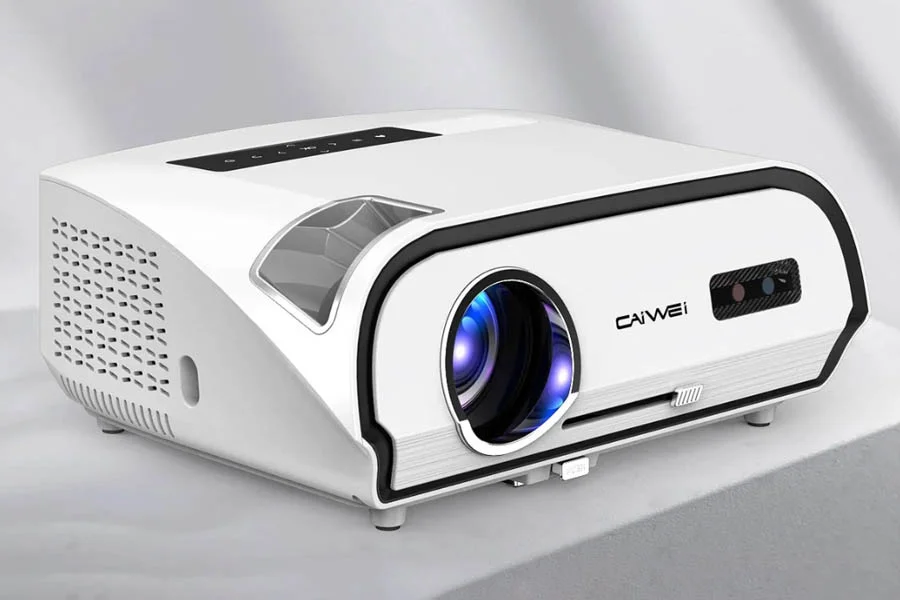Finding Your Perfect Visual Companion: Projector vs TV for Home Theater

The debate of projector vs tv for home theater has been ongoing among movie enthusiasts and gamers alike. Both options have their unique benefits, but how do they stack up against each other? This article aims to provide insights into this discussion, helping you make an informed decision about your next big purchase.
An Overview of Projectors in Home Theaters

Projectors have come a long way since their inception, with technological advancements enhancing their capabilities significantly. They offer a large screen size that can transform any room into a mini cinema. One such device is the Ultra HD 4K Beam Projector for Home Theater, which delivers stunning visuals right at your comfort zone.
A Look at TVs in Home Theaters
On the other hand, televisions are no strangers to most households. With features like smart connectivity and high-definition displays, TVs continue to be popular choices when it comes to home entertainment systems.
Diving Deeper into Projector vs TV For Home Theater Debate

In terms of picture quality and resolution, both projectors and TVs offer impressive performance depending on specific models. However, when considering factors like space requirements or adaptability to varying lighting conditions – things may start leaning towards one over another.
Projectors, such as the Ultra HD 4K Beam Projector for Home Theater, are designed to work best in darker rooms. TVs, however, can perform well even under bright lights.
Cost Considerations: Projector vs TV For Home Theater
In terms of cost-effectiveness, a high-end projector may come at a higher initial price than an equally equipped television. However, when considering factors like screen size and longevity of use – projectors often prove to be more economical in the long run.
Projector vs TV For Home Theater
Ultimately, choosing between a projector and a TV for your home theater setup depends on various personal preferences and specific requirements. If you’re looking for immersive cinematic experiences right at home or have ample space to spare – then investing in something like the Ultra HD 4K Beam Projector for Home Theater could be worth considering.
Tips And Tricks To Optimize Your Viewing Experience
To make the most out of your chosen device – whether it’s a projector or TV – consider these tips:
- Maintain optimal distance from the screen based on its size.
- Avoid placing devices near windows where sunlight might interfere with picture quality.
- Regularly clean your devices to ensure longevity and performance efficiency.
In the ongoing comparison of projector vs tv for home theater, it’s clear that both have their strengths and weaknesses. The best choice depends on what you value most in a viewing experience.
Screen Size: Projector vs TV for Home Theater
In the realm of screen size, projectors are undisputed champions. With a projector like the Ultra HD 4K Beam Projector for Home Theater, you can easily adjust your display to fill any wall in your home. On the other hand, televisions have fixed screen sizes which may limit their adaptability to different rooms or audience sizes.
The Impact of Room Size on Your Choice
Your room’s dimensions play a significant role when deciding between a projector and TV for your home theater setup. If space is limited, a sleek flat-screen TV might be more practical. However, if you have ample room and want a truly immersive viewing experience, nothing beats the grandeur of projection.
Considering Sound Quality in Projector vs TV for Home Theater Debate
A key aspect often overlooked in this debate is sound quality. While most TVs come with built-in speakers that deliver decent audio output, projectors usually require an external speaker system for optimal sound performance.
Maintenance Aspects: Projector Vs Tv For Home Theater
Maintenance is another factor worth considering while making your choice. Televisions generally require less upkeep than projectors do – it’s important to regularly clean projector lenses and replace bulbs as needed to ensure long-lasting performance.
Taking Advantage Of The Latest Trends

To stay ahead of the curve and make informed decisions about your home theater setup, keep an eye on emerging trends within this niche market segment. Whether it’s advancements in resolution technology or innovations in connectivity features – staying updated will help you get maximum value from your purchase.
Projector vs TV for Home Theater
In the end, what matters most is how well your chosen device aligns with your viewing preferences and lifestyle. Whether you opt for a projector like the Ultra HD 4K Beam Projector or choose to stick with a traditional television – both can provide satisfying home theater experiences when used correctly.
The debate of projector vs tv for home theater may never have a definitive winner as personal preference plays such an important role. However, understanding the strengths and weaknesses of each option will help steer you towards making an informed decision that best suits your needs.










Leave a comment